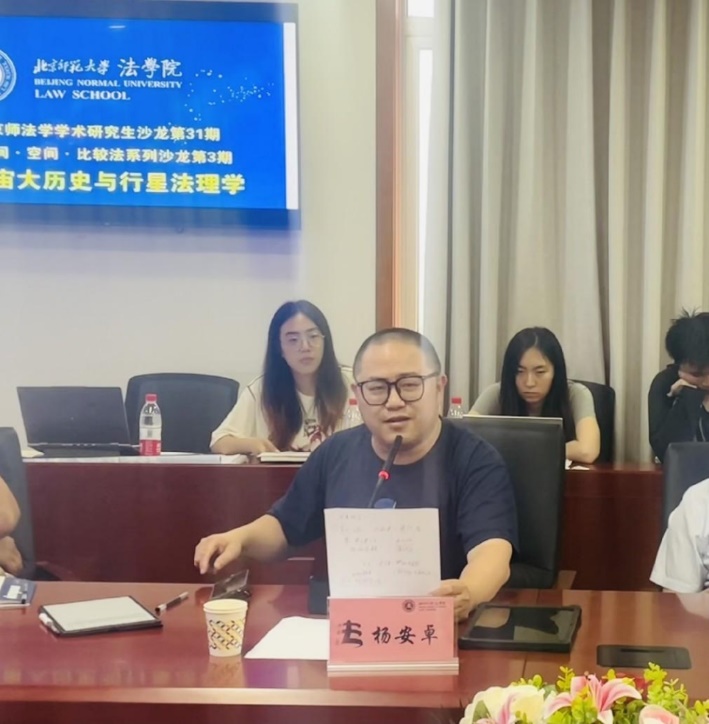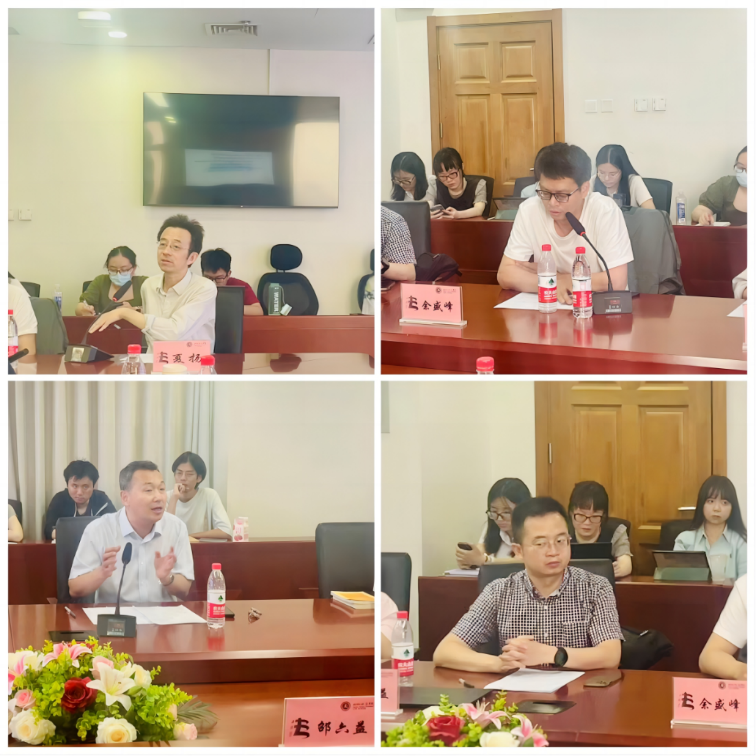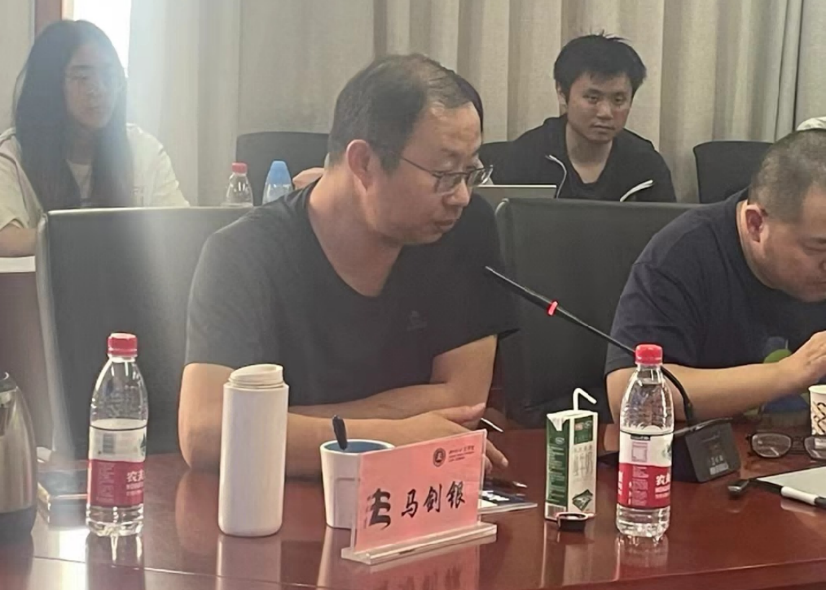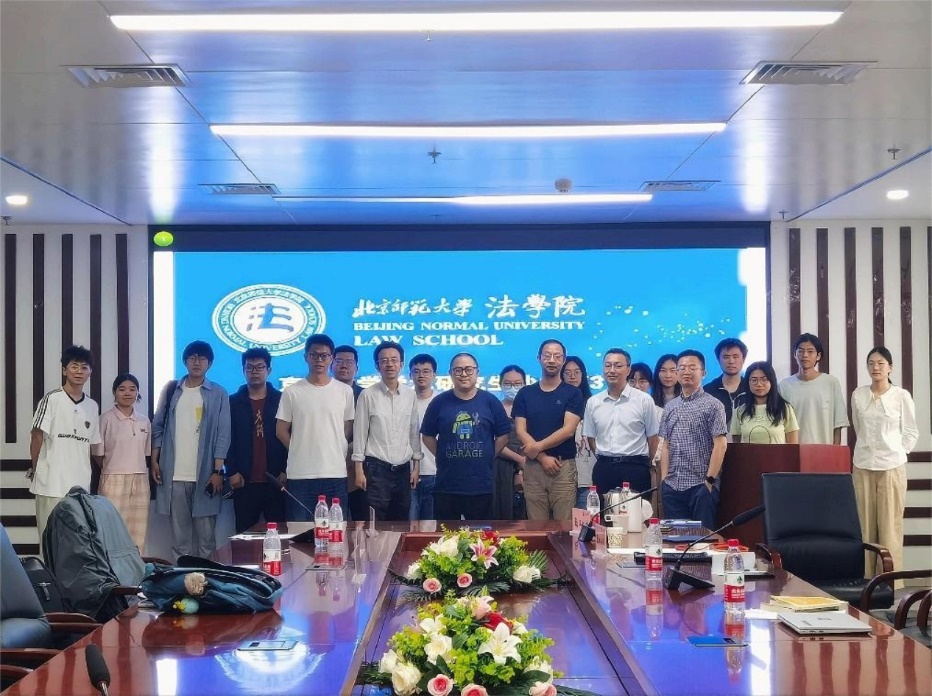
On May 18th, the 31st session of the BNU Legal Graduate Salon and the 3rd session of the Time, Space and Comparative Law Salon was successfully held in the Rear Main Building of Beijing Normal University, Haidian. The theme of this lecture was "The Big History of the Universe and Planetary Jurisprudence", and it was delivered by Associate Professor Yang Anzhuo from the Law School of Jiangxi University of Finance and Economics. Professor Ma Jianyin from the Law School of Beijing Normal University presided over the lecture, and Professor Xia Yang from the Law School of Beijing Normal University, Associate Professor Chen Yu from the Law History Research Institute of China University of Political Science and Law, Associate Professor Yu Shengfeng from the Law School/Higher Research Institute of Beihang University, and Associate Professor Shao Liuyi from the Law School of Central University for Nationalities joined the discussion.

At the outset of the lecture, Associate Professor Yang Anzhuo launched into a discourse on the forefront of physics research, elucidating the significance and imperative of future-oriented legal inquiry. Drawing inspiration from Elon Musk's article, "Making Humans a Multi-Planetary Species," published in New Space in 2017, Associate Professor Yang delved into the intricate interplay between technology and the law. He underscored the necessity for legal research to concentrate on the prospective evolutionary trajectories of humankind, citing the paradigm shift of Professor Lawrence Lessig from traditional legal scholarship to the advocacy for online game creators as a case in point.
After pointing out the importance of historical research for future technological imagination and understanding, Associate Professor Yang entered into the discussion of "Big History". He pointed out the abstractness of the concept of "Big History" in traditional historical research, which ignores the actual changes of humanity in history. Therefore, he proposed that the scope of the discipline of "Big History" should include the history of the universe from before Earth's life to today, from China to the whole world, and even to the entire universe. Finally, he mentioned the research methods and significance of the discipline of "Big History". Through the perspective of "Big History", we can recognize that human activities are a link in the evolution of the universe, revealing the inherent connection between humans and the natural world. It helps us broaden our horizons, understand the position and significance of human civilization on a larger scale, cultivate systematic thinking and the concept of sustainable development. Introducing big history into law can enable us to re-examine the origin, evolution, and future of human society and its normative structures in the cosmic order from a planetary-scale perspective.
In the "Planetary Jurisprudence" section, Associate Professor Yang first reviewed the evolution of global law and affirmed the progress of global law in breaking through anthropocentrism, but there are still limitations in focusing on the Earth as a celestial body. Global law originated with the rise of environmental law in the 1970s, and the fate of the Earth was first valued. Around 2010, the United States first proposed the concept of global law. Subsequently, Associate Professor Yang expanded global law and proposed relevant research points for "Planetary Jurisprudence". He pointed out that "Planetary Jurisprudence" is a legal perspective advocating a holistic cosmology, which has developed along the lines of Earth jurisprudence and Earth system law with the development of human society and the revival of interplanetary scientific exploration. The perspective of planetary jurisprudence extends to the entire solar system, galaxy, and even the entire universe, recognizing that human survival depends not only on Earth, but also on the vast cosmic environment; In terms of core concepts, “Planetary Jurisprudence” redefines the connotation of “nature”, incorporating the entire material world and re-exploring normative concepts such as the limitation and development of concepts such as “rights” and “human rights” within planetary boundaries; The connotation of planetary jurisprudence combines two aspects: "Earth governance" and "cosmic environmental governance". Its core is the comprehensive management of this special planet, Earth, but it also reflects the long-term vision of humanity, which is to one day extend the governance perspective and effectively manage the entire planetary system and even the broader universe.

In the subsequent discussion session, Professor Yu Shengfeng first affirmed the new perspective resources provided by this sharing session and tried his best to surpass the limitations of traditional nation-state theory. At the same time, he also pointed out that "Planetary Jurisprudence" may have limitations such as misleading concepts, weak explanatory power, and insufficient connection with traditional concepts; Professor Shao Liuyi analyzed this topic from the perspective of environmental law, believing that the study regards the Earth as a community and provides a more macro perspective to consider environmental issues; Professor Chen Yu first reviewed the joint research experience with Associate Professor Yang Anzhuo, affirmed the foresight and future popularity of this study, and finally mentioned the importance of history, believing that history can help us better understand the development of society; Finally, Professor Xia Yang discussed the relationship between natural sciences and social sciences, and he believed that natural science methods can play a fundamental role in social sciences.
In the Q&A segment, the attending students enthusiastically engaged in the exchange of ideas, posing insightful questions and offering reflective comments on the practical research methodologies of planetary law. They inquired into the approach for humanities students to delve into technology law and explored the integration of legal history with the realm of technology law. The faculty members, in turn, provided generous mentorship and participated in stimulating dialogues with their peers, furthering the discourse around these thought-provoking topics.

In conclusion, Professor Ma Jianyin reiterated his heartfelt appreciation to Associate Professor Yang for the enlightening lecture. The scholarly gathering drew to a successful close amidst resounding applause from the entire audience.

